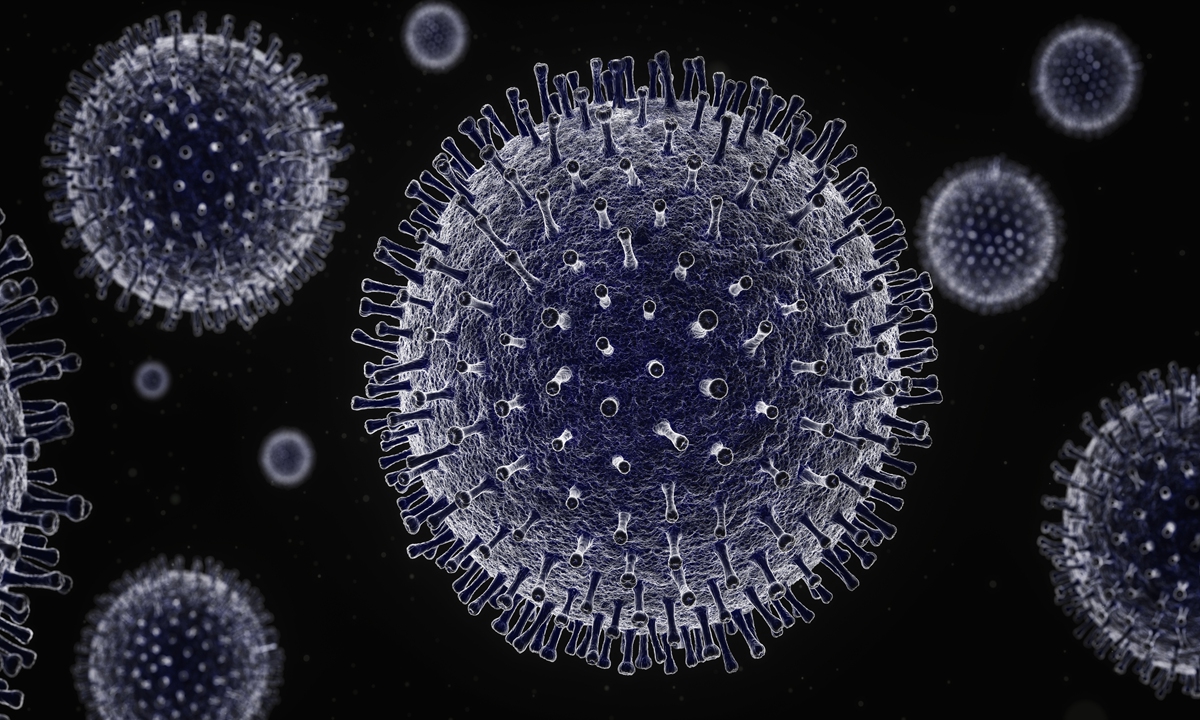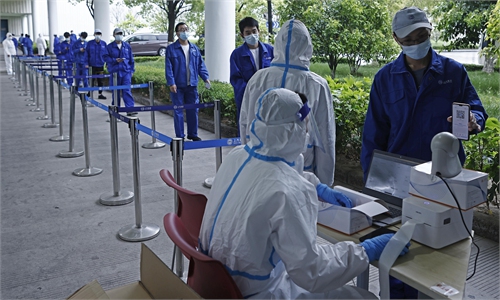
Virus Photo: VCG
The mysterious strain of severe hepatitis detected in children among 12 countries, which has caused at least one death, has gripped the nerves of Chinese public, who fear a link between this unknown strain and Sars-CoV-2.
Medical experts said it is too early to establish such a connection, but governments should not let their guard down in the face of COVID-19 or the hepatitis, fearing that in tandem, the two would cause severe consequences.
The World Health Organization (WHO) said on Saturday that at least one child's death had been reported following an increase of acute hepatitis of unknown origin in children, and that at least 169 cases had been reported in children in 12 countries. Most of the infections have been found in the UK. Other countries, such as Spain, the US, Denmark and Italy, have also recorded cases.
The UN body said on Saturday that it is aware of 169 rare cases of acute hepatitis, an inflammation of the liver, in young children. Of these, 17 became so sick they needed liver transplants.
The WHO also said that a common cold virus known as an adenovirus had been detected in at least 74 cases. A COVID-19 infection was identified in 20 of those tested and 19 cases were detected with a COVID-19 and adenovirus co-infection, it said.
After the cases were reported, public health officials in the US and the UK announced that they had launched an investigation into cases of the severe acute hepatitis in children.
Although no case has been reported in China, this information has gripped the nerves of the Chinese public, who fear that when the Sars-CoV-2 outbreak is yet to ebb away, such an outbreak of hepatitis may lead the outbreak into uncharted territory.
Scientists worldwide believe more studies are needed to look into the connection between Sars-CoV-2 and the strain of severe hepatitis.
Public Health Scotland's director, Jim McMenamin, told Reuters that work is under way to understand if an adenovirus has mutated to cause more severe disease, or if it could be causing the problems with another virus, including possibly Sars-CoV-2, the virus that causes COVID-19.
Any link to COVID-19 vaccines has been ruled out, as the vast majority of children who have fallen ill were not vaccinated, according to the WHO.
Guangzhou-based medical expert Zhuang Shilihe disagreed with those claims of a "direct link" between the hepatitis and Sars-CoV-2, as well as the COVID-19 vaccines, as there's no scientific evidence pointing that way.
But Zhuang believed it is possible that infection with Omicron, the latest dominant variant of Sars-CoV-2, has made the symptoms of the hepatitis more severe, as Sars-CoV-2 wreaks havoc on the human immune system.
Lu Hongzhou, head of Shenzhen's anti-epidemic expert team and head of the Third People's Hospital of Shenzhen, told the Global Times that "under normal circumstances, infection by an adenovirus won't lead to severe hepatitis."
However, Lu also pointed out that people with weak immune systems can suffer severe consequences from an infection by an adenovirus. Especially among patients who have undergone organ transplants, an adenovirus can cause serious respiratory tract infection, as well as viral pneumonia.
People of all ages are easily prone to adenovirus infections, yet children with weaker immune systems are even more vulnerable to such a virus, according to Lu.
Epidemiologists believe China's current zero-COVID policy has provided a shelter for the vulnerable group, so that the under-aged group is currently less exposed to further dangers like the unknown hepatitis.
Zhuang urged relevant institutes to pay special attention to epidemiological surveillance, so that if such cases of hepatitis occur, they should report this and transfer the cases to hospitals with better conditions.

